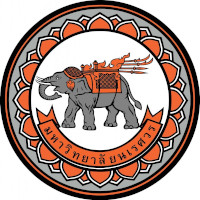NARESUAN UNIVERSITY (NU)

DESCRIPTION
Naresuan University emphasizes the improvement of educational opportunity and equity for all as one of the top government university in Thailand. A strong focus is placed upon research, innovation, partnership, and internationalization. Naresuan University aspires to be the University of Innovation. It is strategically located at the heart of the Thai Kingdom, Phitsanolok province, the major city of the lower northern region and more importantly, the birthplace of King Naresuan the Great after him our University is named. University was officially founded on July 29, 1990. The institution’s history can, however, be traced back to its inception as the College of Education in 1967. The comprehensive university lives up to the public expectations in providing diverse, cutting-edge programs through 16 faculties, 3 schools, 1 college, and 1 institute. They are clustered into the Health Sciences Cluster, the Science and Technology Cluster, and the Social Sciences Cluster.
The Faculty of Engineering was founded in 1994 with the establishment of two departments: Civil Engineering and Industrial Engineering, followed by Department of Mechanical Engineering in the following year, and Department of Electrical and Computer Engineering in 1997. As of today, there are four full-capacity departments, which are strengthened with 101 academic staffs. Current student enrollment into the discipline is 950 graduate and 2200 undergraduate students.
The Department of Mechanical Engineering has 3 academic programs in undergraduate programmes and graduate program such as Bachelor of Engineering degree in Mechanical Engineering, Master of Engineering degree in Mechanical Engineering and Doctoral of Engineering degree in Mechanical Engineering. Number of undergraduate student, master student and PhD student are 341, 11 and 1, respectively. There are 4 Associate Professors, 8 Assistant Professors and 6 Lecturers working on various research related in field of Energy, Civil Engineering Mechanics, Automatic Control, Thermodynamics and Fluid Mechanics, Agricultural Engineering, Biomedical Engineering and Precision Engineering. Three research units have been established in the Department as follows:
- Innovative Mechanical Engineering Center (i-MechE): conducting Design, Testing and Management in Agricultural Machinery, Gas Turbine Technology, Building Technology and Energy Sustainability and also Creative Design Process (CDP);
- Development and Research of Innovative Vehicle Engineering Center (DRIVE): focusing on Electronic control units development for driving assistant systems, Active safety technology, Electric vehicle design and manufacturing/Eco-battery technology and Intelligent vehicle system simulation including Virtual car prototyping;
- Research Unit for Precision and Medical Engineering Technology (PMET): studying and developing in field of medical engineering and high precision engineering including hardware and software.
ROLE
- To take part in the Project Network development in Asian Region;
- To take part in the modernisation and enhancing course structures at Bachelor, Master and PhD levels and of syllabus of the selected modules on Integration of Sustainable Renewable Energy Solutions into the Built Environment with the aim to re-focus on teaching students modern and future advanced technologies, taking into account the latest developments at the international level. Also NU will play a considerable role in the distance improvement of Skills Development of PhD students in Integration of Renewable Energy Technologies into Buildings.
- To participate in setting up teaching laboratories and delivering the Laboratory work notes at NU;
- To organise teaching processes at NU;
- To participate in quality assurance of all teaching materials, methods and processes at NU;
- To coordinate the promotion of project and dissemination of its results at national and international levels.

